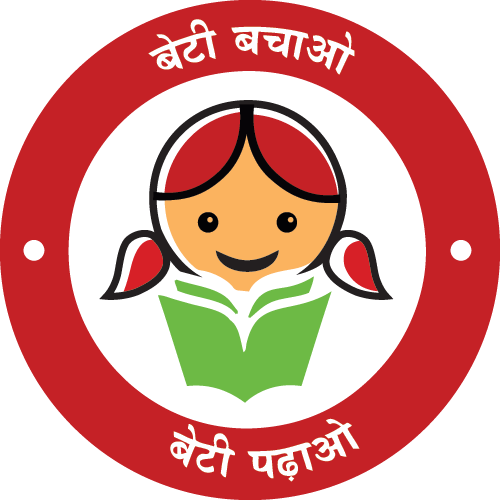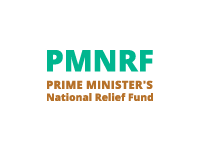Activities of North East Cell
Activities Of North East Cell
Visit of National Commission for Women to Manipur from 9-12 January, 2014
To give wide publicity to the creation of separate NE Cell in NE region and to interact with local women, a delegation of National Commission for Women led by Smt. Mamta Sharma, Chairperson of National Commission for Women, visited Manipur from 9th-12th January, 2014. During the visit, the following programmes were organised in collaboration of Manipur State Commission for Women:-
I) Interactive Meeting of National Commission for Women with the Chairpersons of State Commissions for Women.
On 9th January, 2014, at Imphal, Manipur, NCW had a session with State Commissions for Women of the region to develop strong network with and to get feedback on the work being done by the State Commissions on following points:-
- how safeguards are provided for women under various laws, are working in the State
- recommendations for effective implementation of safeguards for improving the condition of women in the state
- advice on improvements in the planning process for socio-economic development of women
- Methodology and plans/proposals for State Women Commission to undertake promotional and educational research, in-house of in collaboration with Universities or local reputed NGO.
Initiating discussion Dr. Ibetombi Devi, Chairperson, Manipur State Commission for Women welcomed Chairperson and Members of NCW and Chairpersons of State Commissions and expressed her gratitude to Smt. Mamta Sharma for the initiative to set up a North East Cell in National Commission for Women.
Smt. Mamta Sharma, Chairperson, National Commission for Women, in her address expressed her happiness at the opportunity to meet in Imphal. Smt. Sharma informed the gathering about various programmes being conducted by NCW and booklets published to prevent gender based violence and to provide opportunity to work on genders issues. She stated that problems of women can vary from state to state and region to region but deprivation of women's right is ubiquitous. She specifically mentioned about valor, political activism of women in North East in all field of life. She informed that a need is also felt for regular interactions to reach women up to the village level to empower and sensitize them about their rights. The NCW is seized of their specific problems and challenges in their own states, as well as in pan India. Therefore NE Cell, has been created to enhance the focus on the women of NE and their special problems/challenges, and also to intervene with State and Central governments whenever required. She also emphasized the need for regular interaction with SCW's who are an important arm for reaching out to the grass root level.
During the interaction meeting Chairpersons of the States made presentations on the aforementioned points.
State Commissions for Women expressed their inability to do productive and meaningful work as per the mandate because of following common problems faced by them:
- SCWs have very small budgets ranging from Rs 25 lakhs to Rs 50 Lakhs and is not sufficient to cater to the needs of women in the area
- Funds are grossly insufficient for holding Legal Awareness Programmes because NE region is difficult area due to its terrain, lack of infrastructure etc.
- Status of CP's and members is not defined except for Tripura where CP is of Cabinet Minister rank and has the full status of Minister
- Salaries or honorarium of Chairperson and Members is extremely low and ranges from Rs 2,000 to Rs 15,000 per month
- Police sensitization is needed to ensure pro-active and co-operation from their personnel
- More Fast track courts are needed to provide much needed justice to women
- Compulsory self defence training for girls to be introduced so that girls protect themselves in danger
- More Shelter homes for girls are required
- Gender budgeting should be introduced in states budget too to ensure dedicated flow of fund for women related issues and programmes
After deliberations, following recommendations emerged:
- NCW may take up the issue of providing uniform status to SCW with the State Governments.
- To construct /set up more shelter homes for women. State Commissions for Women may submit proposals to NCW who will take up help from Public Sector Undertakings to access funds available for CSR activities.
- State Commissions for Women may submit media plans to NCW for collaboration to print/publish and prepare material for generating awareness among people and specially women.
- State Commissions for Women in association with Police /Judicial Academies are to submit proposals to NCW for organizing capacity building/training programmes of implementing officers
II) Interaction with vendors of 'Ima Keithel' on 10th January,2014
The NCW organized an interactive meeting with vendors of ImaKeithels of Imphal along with CP's of SWC's of NE States in Imphal on 10th Jan 2014. Ima Keithels [Mother's Market] well known throughout the world. Ima Keithel is a pure symbol of women's equality and independence. Not a single man is found selling anything here. From vegetables to fish, fruits to utensils, clothes to handicrafts, and other local products, the vendors are all women. The peculiarity of the market is that it is not only a place of sustenance and commerce but also of information exchange and socio-political processes. The women of Manipur were progressive and established multipurpose markets all over the state from zero level and these came to be known as Ima Keithels. These markets give opportunity to women to get together and have a united forum for periodical discussings problems of women and taking up these with States by writing to the authorities.
Minister for Social Welfare Manipur Kumari AK Mirabai Devi graced the occasion as Chief Guest. Chief Secretary Mr PC Lawmkunga, IAS and Principal Secretary, Department of Social Welfare Mr.Barun Mitra, IAS were also present.
On the occasion, a bilingual book (Manipuri English) of the NCW publication 'A violence free Home, women's Right', was released.
The women traders of Ima Keithels of Imphal came out with the following problems and suggestions during the interaction that followed:
- The walls and fence around the market should be removed so that the market is open from all sides to ensure free access to shoppers from all sides.
- Toilets were leaking and needed to be repaired by the government.
- Woman run Bank is needed for the three markets at one place and should be opened on first floor where the space is earmarked for this.
- Municipal tax which was Rs 15 a month has been raised to Rs 90 per month. This should be reduced.
- Leaking roof of market must be repaired as wares and goods get damaged when it rains.
- Loans are taken at very high interest and government should give subsidy on interest being paid to bank
- Street vendors are taking away the business and should be banned
- ATM may be installed in the market
- The parking space should be shifted away from the market.
- Government wanted to convert the three Ima Keithels into a Supermarket but women of Ima Keithels staged a protest called 'sleepless nights'. They said that they are against Supermarket and want to continue in the traditional style market.
- Secretary of Phouoibi market submitted a memorandum to the Chairperson NCW, Smt. Mamta Sharma
Subsequently meeting with officers of Government of Manipur was held to discuss all the issues raised by women of Ima Keithel and to request for expeditious redressal of their grievances.
III) Moreh-border town- visit of NCW on 11th January, 2014
Chairperson NCW Smt. Mamta Sharma, Member NCW Smt. Nirmala Samant Prabhavalkar and Smt. Laldingliani Sailo, Member, NCW met women community leaders of Moreh border town on Indo- Myanmar boundary. The Chairpersons of State Commissions for Women of NE states were present.
In the 'sharing session', the women leaders of Moreh shared the following problems faced by them,
- No medical facilities for pregnant women were available and so they have to go to Imphal. A few have been reported to die on the way
- Water available in the area is not good for drinking.
- The Hill Tribal Council, Meitei Council etc decide on the law and community associations take care of issues like rape.
- Many NGOs are working on problems of women and drugs, HIV/AIDs etc
- Women of Moreh are mostly working as porters. There should be better employment opportunities for them
- Government should offer some alternative livelihood for economic upliftment.
- No proper facilities for garbage disposal and women have to sweep and clear the garbage.




















